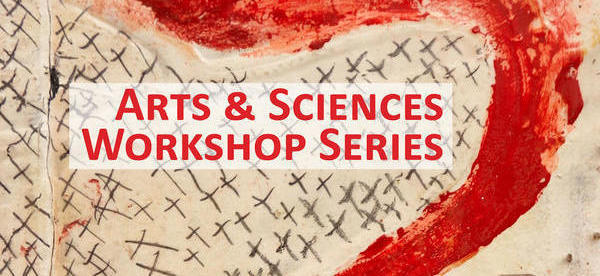Date:
Location:

Speaker: Fernando Degiovanni, Professor, The Graduate Center, City University of New York
Moderator: Mariano Siskind, Professor, Department of Romance Languages and Literatures
In 1911, the Argentine intellectual Manuel Ugarte started a two-year lecture tour of Latin America and the United States with a crucial question in mind: can Latin Americanism be embodied practice? His visit to every single country in the Western hemisphere—an almost logistical impossibility at the time—was conceived as a deliberate tour de force against the dematerialized, aesthetically oriented, utopian formulations of continental unity put forward a few years earlier by influential turn-of-the-century writers such as Rodó, Martí and Darío. For more than a century now, normative discourses of Latin Americanism continue to be conspicuously at odds with notions of corporeal and technological grounding, and the political and cultural economies that sustain them. This seminar will explore an alternative history of Latin Americanisms—one founded on embodied performances, communications networks, and social activism. The notion of vernacular Latin Americanisms will allow us to rethink the material, situated foundations of a specific form of transnationalism whose political and epistemological imperatives continue to concerns its defenders and critics up to the present.
Fernando Degiovanni Fernando Degiovanni is Professor and Chair of the PhD Program in Latin American, Iberian, and Latino Cultures at The Graduate Center, CUNY. His current research focuses on issues of intellectual performativity, embodiment and spectacularizarion in modern Argentina. Drawing on contemporary theory and extensive archival research, his scholarship explores liminal inscriptions of lettered bodies in alternative spaces of communal engagement, such as mass demonstrations, urban interventions, and lecture halls.
Fernando Degiovanni is the author of Los textos de la patria: Nacionalismo, políticas culturales y canon en Argentina (Beatriz Viterbo Editora, 2007) and Vernacular Latin Americanisms: War, the Market, and the Making of a Discipline (University of Pittsburgh Press, 2018), a book that explores the competing agendas that shaped the emergence of Latin Americanism as a field of critical debate and scholarly inquiry between the 1890s and the 1960s. He has also guest-edited the dossier Comunidades y relatos del libro en América Latina (2015). His articles have appeared in numerous journals, including Revista Iberoamericana, Revista de Crítica Literaria Latinoamericana, Journal of Latin American Cultural Studies, Variaciones Borges, Hispamérica, and Cuadernos Hispanoamericanos, as well as in major reference works such as A Companion to Latin American Literature and Culture, edited by Sara Castro-Klaren, and Historia crítica de la literatura argentina, edited by Noé Jitrik.
Fernando Degiovanni has been a fellow of Wesleyan University’s Center for the Humanities. His research has been supported by grants from the National Endowment for the Arts, the Antorchas Foundation, and the Council for Scientific Research in Argentina. In 2010, he was awarded the 2010 Alfredo Roggiano Prize for Latin American Cultural and Literary Criticism by the International Institute for Ibero-American Literature (IILI). He earned his M.A. and Ph.D. at the University of Maryland, College Park, and came to The Graduate Center from Wesleyan University, where he was Associate Professor of Romance Languages and Literatures and chaired the Latin American Studies Program.
